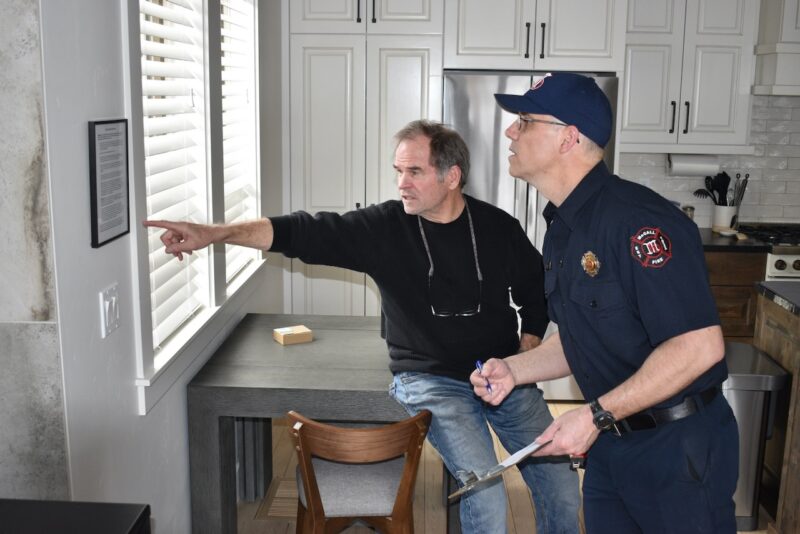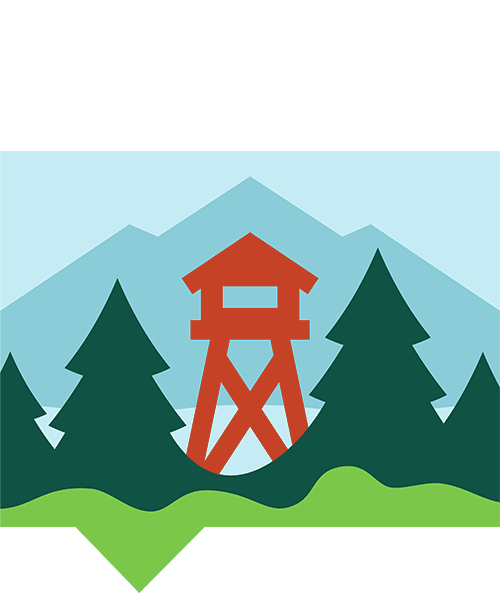The City of McCall’s rules governing short-term rentals will live to fight another day.
Earlier this month, Fourth Judicial District Judge Jason Scott ruled in favor of the city on a lawsuit brought last year by a group of five McCall short-term rental owners.
Scott’s ruling was nearly a clean sweep for the city, with only a vague noise provision being struck from the city’s law, which the lawsuit said should be thrown out entirely.
“Specially regulating STRs is rational,” Scott wrote in a 21-page decision filed July 8. “Indeed, it is invited by (Idaho’s short-term rental law), a statute whose constitutionality plaintiffs don’t question.”
The group of short-term rental owners argued the city’s rules are overly restrictive and have the “practical effect” of limiting property rights.
The court’s ruling may be appealed until late August, but it is unclear if the short-term rental owners plan to do so. Alex McLaughlin, a Boise attorney representing the owners, did not respond to Valley Lookout’s request for comment.
McCall Community Engagement and Public Affairs Director Erin Greaves declined to comment to Valley Lookout on the ruling, citing the open appeal period.
Statewide implications
The ruling could mark a major win for McCall and cities across the state, which in recent years have reported a surge in short-term rental homes while simultaneously grappling with limited regulatory authority afforded by state law.
The law, adopted in 2017, allows local governments to pass “reasonable” short-term rental regulations related to health, safety, and public welfare.
The lawsuit against McCall’s rules, which were adopted in 2022, is the first time the definition of “reasonable” regulations has been challenged in court.
The city’s rules reduced the occupancy of short-term rentals by allowing two people per bedroom, plus two more people, instead of four people per bedroom under previous rules. The total occupancy of short-term rentals was also capped at 10 guests unless the rental is approved for a conditional use permit.
A new permitting process that includes annual fire safety inspections by McCall Fire and EMS was also created by the rules. The inspections verify safe egress from bedrooms and check safety equipment like smoke detectors, carbon monoxide detectors, and fire extinguishers.
Without donors like you, this story would not exist.
Make a donation of any size here

Lawsuit: city’s law ‘unreasonable,’ beyond regulatory authority
The short-term rental owners who filed the complaint labeled the city rules as “cost prohibitive” and said they have the “practical effect” of regulating short-term rentals beyond what state law allows. Scott flatly rejected that argument.
“This argument doesn’t merit much discussion because it has no factual support,” Scott said. “Plaintiffs admit they still earn substantial income from using their properties as STR’s despite the STR ordinance, though some of them say it has caused their STR income to decline.”
Scott also said the lawsuit made “no good arguments” that the city’s rules go beyond the regulatory authority provided by state law.
The judgment specifically addresses the city’s short-term rental occupancy limit formula and annual safety inspections, as well as parking limits that allow guests only one vehicle per bedroom.
“Though the plaintiffs’ try, it is hard to dismiss as unreasonable the STR Ordinance’s requirement that STRs must meet certain safety standards, as determined in an inspection by the fire department,” Scott said.
However, Scott agreed with an argument the lawsuit made regarding a noise provision in the short-term rental regulations and struck it down.
The provision banned “any…noise that can be heard beyond the [STR’s perimeter]…between the hours of 10 p.m. and 8 a.m.” The vague language, Scott said, would have the “practical” effect of banning anyone from coming and going from the property during those hours.
It is unclear what noise rules, if any, are in place for McCall’s short-term rentals following Scott’s decision.
Short-term rentals vs. long-term rentals
The lawsuit also argued that the city violated state and federal law by treating long-term rentals differently from short-term rentals. Scott again rejected that argument and noted that Idaho’s short-term rental law invites differing regulations.
“It is a legislative judgement that STR use and long-term residential use differ, and the former—if not specially regulated—imperils the latter’s desirability,” Scott said.
The differing regulations, the lawsuit said, violate the Equal Protection Clause of the U.S. Constitution and the Idaho Constitution.
Scott disputed that argument and said the city’s law passes the rational-basis test because it is rooted in a “plausible policy reason.”
“Occupancy transience rationally can be thought to increase, among other risks, the risk of disruptive behavior,” Scott said. “An STR’s transient occupants don’t need good relationships with the people who live in neighboring homes.”
“Heavy occupancy intensity rationally can be thought to increase that same risk, as well as safety risks and parking problems,” he said.
Short-term rental owners named in the lawsuit were McCall residents Dan and Diane Scott, Paul DeWitt of Boise, James Buatti of Pleasanton, California, and Dennis Crispin of Bellevue, Washington. A fifth owner was also initially named in the complaint, but later dropped out of the case.
Legislative implications
The arguments in the lawsuit closely resemble those behind recent efforts by Idaho lawmakers to pass legislation further restricting the ability of cities and counties to regulate short-term rentals.
Bills sponsored by Rep. Jordan Redman, R-Coeur d’Alene, did not gain traction in either of the last two legislative sessions, as BoiseDev reported, but sought to outlaw several provisions of McCall’s short-term rental rules.
The district court’s ruling comes on the heels of an Idaho Supreme Court case that struck down short-term rental regulations in Lava Hot Springs, a resort city in eastern Idaho.
That decision, however, concerned the city regulating owner-occupied short-term rentals differently than other short-term rentals.
The Lava Hot Springs ruling, written by Chief Justice G. Richard Bevan, specifically noted the court expressed no opinion on “what might constitute a reasonable regulation,” which was the basis of the challenge to McCall’s law.
McCall’s tourism economy
There are currently 392 short-term rentals permitted to operate in McCall, according to Amanda Payne, the city’s short-term rental compliance administrator.
The short-term rental marketplace has become a key part of the city’s tourism economy, but has also consistently driven complaints to the city about parking, noise, and trash associated with short-term rentals — particularly those with occupancies of more than 10 people.
However, two tax initiatives passed by city voters enable the city to capitalize on its seasonal influx of tourists by levying a combined 6% tax on all short-term lodging stays.
The lodging taxes provide a window into tourist activity from year to year and demonstrate the significant seasonal swings the city experiences with tourism volume.
Last year, the taxes earned about $472,000 per month from June through September, compared to about $231,000 per month the rest of the year.
Since 2018, annual earnings from the taxes have risen from a combined $2.4 million to $3.7 million, or by about 54%.
From 2021 to 2024, short-term rentals alone contributed nearly $2.5 million to the city’s tourism tax coffers, according to city records. That figure does not include local motel bookings. It also does not account for property taxes paid by short-term rental owners or additional tax funding raised by guests who pay a 1% general sales tax on purchases within the city.
Correction: A previous version of this story incorrectly identified one of the plaintiffs as former Shore Lodge general manager and current Whitetail Club real estate broker Dan Scott.






